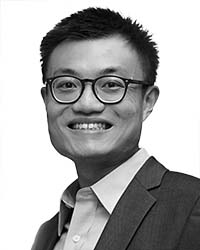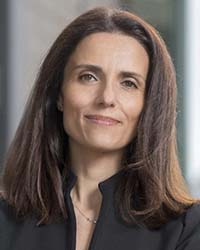Webinar Series
Data-intensive Innovation and the State: Evidence from AI Firms in China
2021
Session Chair: Zheng (Michael) SONG
Professor at the Department of Economics, Chinese University of Hong Kong
David Y. Yang, Assistant Professor, Department of Economics, Harvard University
Co-authors:
Martin Beraja, Pentti J. K. Kouri Career Development Assistant Professor of Economics, Massachusetts Institute of Technology
Noam Yuchtman, Professor of Managerial Economics and Strategy and Deputy Head of Department (Faculty Development), Department of Management, London School of Economics and Political Science
Matilde Bombardini, Associate Professor of Business and Public Policy, Haas School of Business, University of California, Berkeley
Speakers
-

David Y. YANG
Assistant Professor, Department of Economics, Harvard University
David Y. Yang is an Assistant Professor in the Department of Economics at Harvard University, a Faculty Research Fellow at NBER and a Global Scholar at CIFAR. David’s research focuses on political economy, behavioral and experimental economics, economic history, and cultural economics. In particular, David studies the forces of stability and forces of changes in authoritarian regimes, drawing lessons from historical and contemporary China. David received a B.A. in Statistics and B.S. in Business Administration from University of California at Berkeley, and PhD in Economics from Stanford.
-

Matilde BOMBARDINI
Associate Professor, Business & Public Policy, Haas School of Business, University of California, Berkeley
Matilde Bombardini is an Associate Professor of Business and Public Policy at UC Berkeley’s Haas School of Business. She is also a Fellow in the Institutions, Organizations and Growth Program, a Research Associate at the National Bureau of Economic Research (NBER) and the Centre for Economic Policy Research (CEPR), and Co-Editor of the Journal of International Economics. She obtained her PhD from the Massachusetts Institute of Technology in 2005. Her research focuses on the organization of interest groups, lobbying, and the link between corporate philanthropy and firms’ political engagement. Her work in international trade has focused on the links between a country’s skill distribution and comparative advantage.
-

Zheng (Michael) SONG
Professor at the Department of Economics, Chinese University of Hong Kong and Senior Fellow, ABFER
Michael Song is a professor at the Department of Economics, Chinese University of Hong Kong (CUHK), an outstanding fellow of the Faculty of Social Science at CUHK, a co-director of CUHK-Tsinghua Joint Research Center for Chinese Economy and a distinguished visiting professor at the School of Economics and Management, Tsinghua University. His research focuses on Chinese economy and macroeconomics. He published papers on leading academic journals including American Economic Review and Econometrica. His paper “Growing like China” won Sunyefang Economic Science Award and the Best Paper Award for Chinese Young Economists. Before joining CUHK, Prof. Song was an associate professor of economics at Chicago Booth. Prof. Song is also a co-editor of China Economic Review, an associate editor of Econometrica and Journal of European Economic Association and an academic committee member of China’s Economics Foundation.
- 1
Session Format
Each session lasts for 1 hour 10 minutes (25 minutes for the author, 25 minutes for the discussion and 20 minutes for participants' Q&A). Sessions will be recorded and posted on ABFER's web, except in cases where speakers or discussants request us not to.
Registration
Registration has closed. Please visit the main page for details on next webinar.

